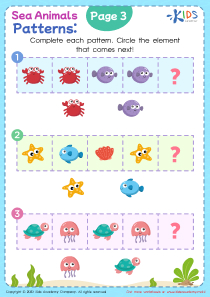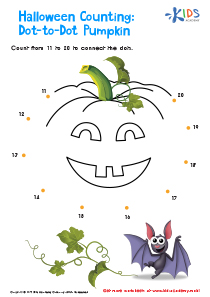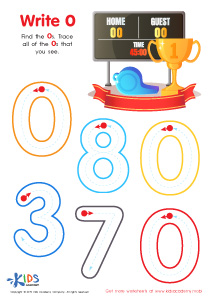Cognitive Development Easy Preschool Numbers 0–10 Worksheets
8 filtered results
-
From - To
Unlock your child's potential with our "Cognitive Development Easy Preschool Numbers 0–10 Worksheets." Tailored for preschoolers, these worksheets make learning numbers both engaging and fun. Designed with vibrant illustrations and interactive activities, they promote essential cognitive skills such as counting, number recognition, and basic problem-solving. Each worksheet provides age-appropriate challenges, fostering critical thinking while helping young learners build a solid mathematical foundation. Perfect for home or classroom use, these resources encourage a love for numbers and prepare children for future academic success. Explore our collection today and watch your child's confidence grow as they master numbers with ease!
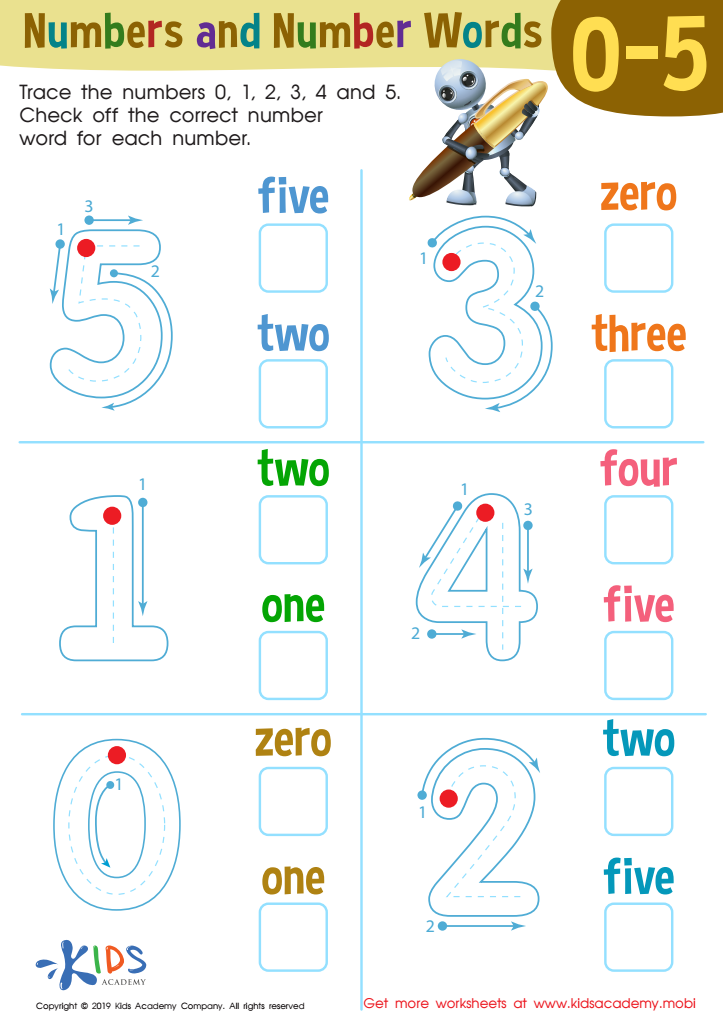

Numbers and Number Words Worksheet
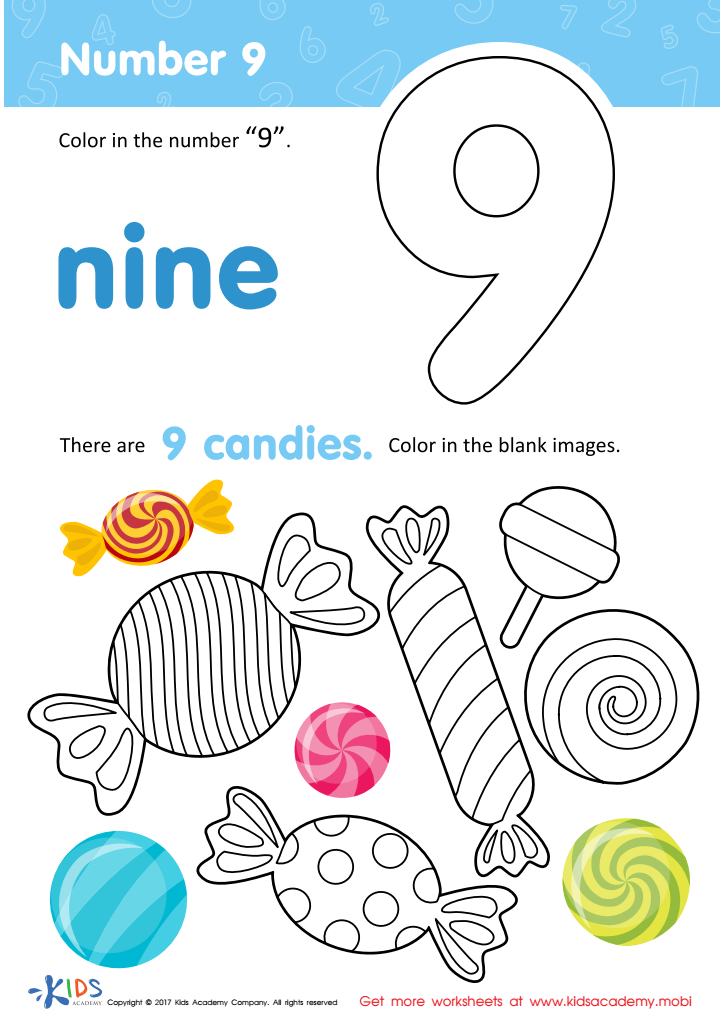

Number 9 Printable
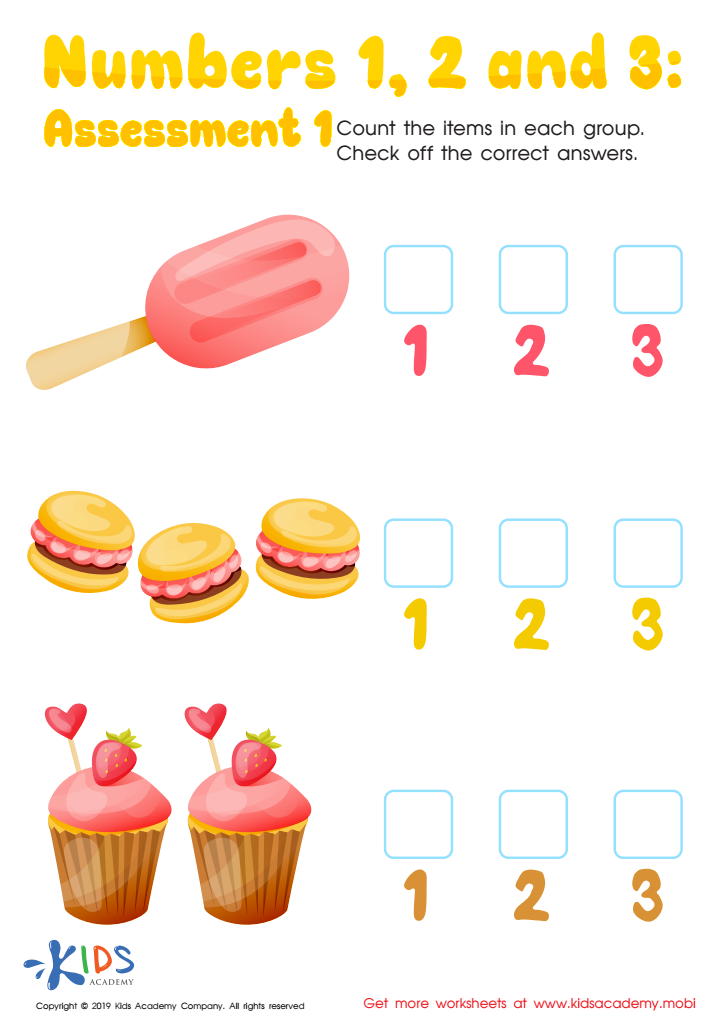

Numbers 1, 2 and 3: Assessment 1 Worksheet
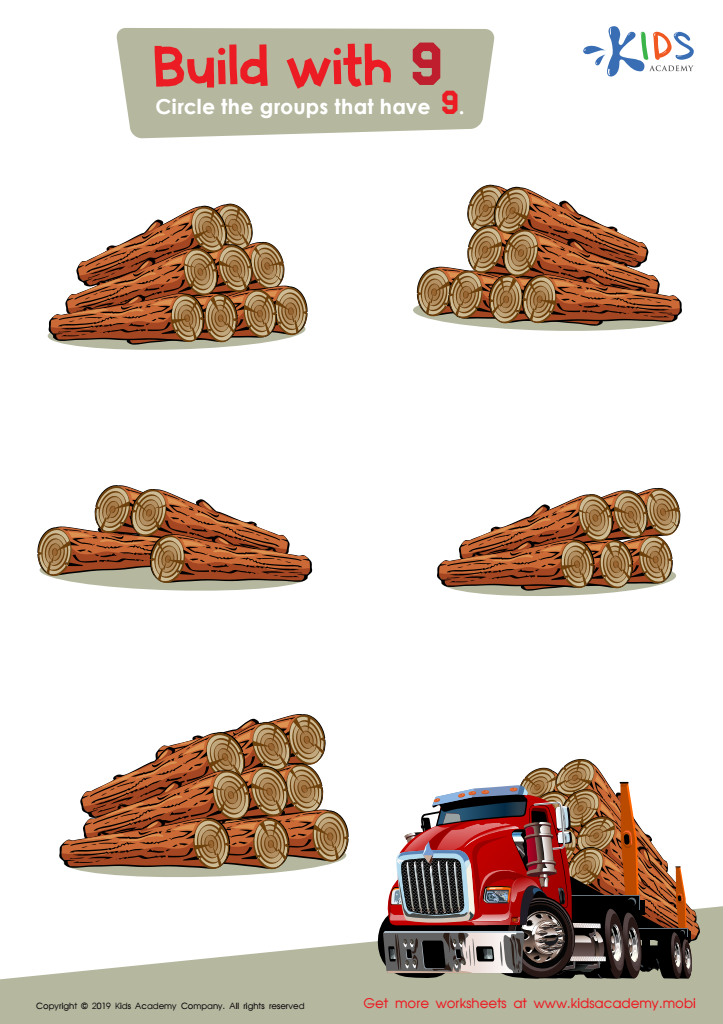

Build with 9 Worksheet
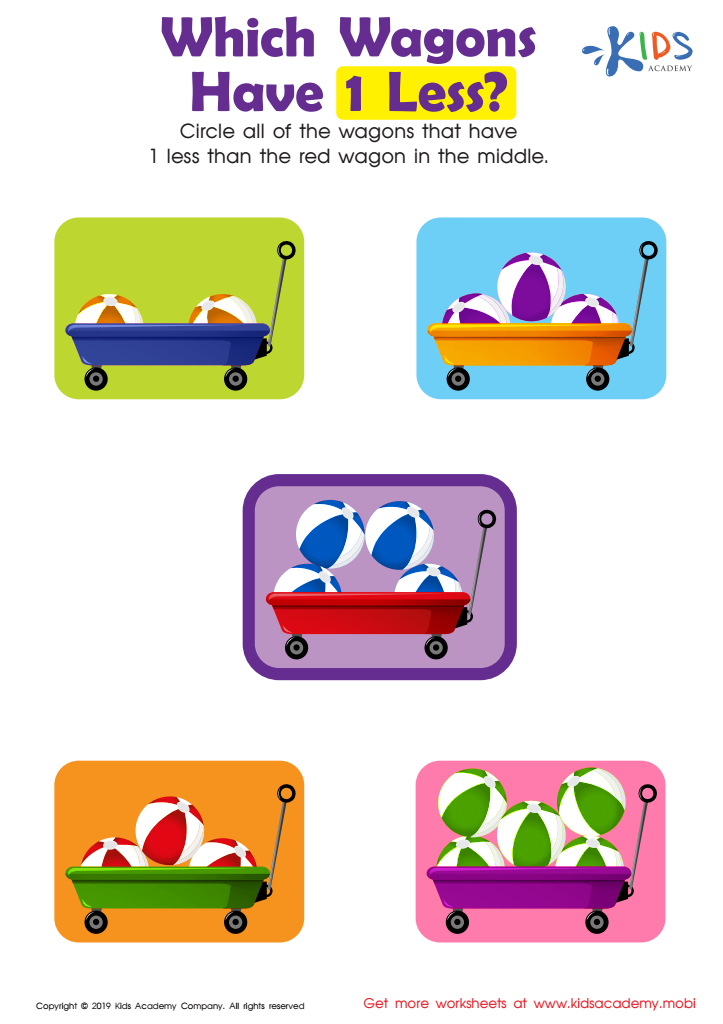

Which Wagons Have 1 Less? Worksheet
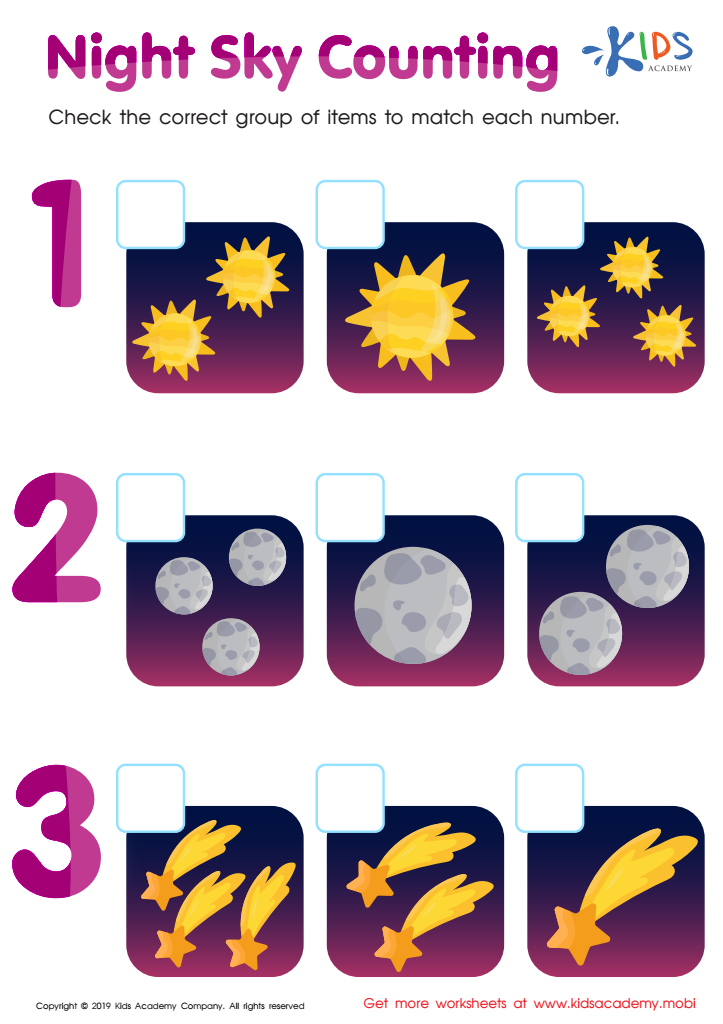

Night Sky Counting Worksheet
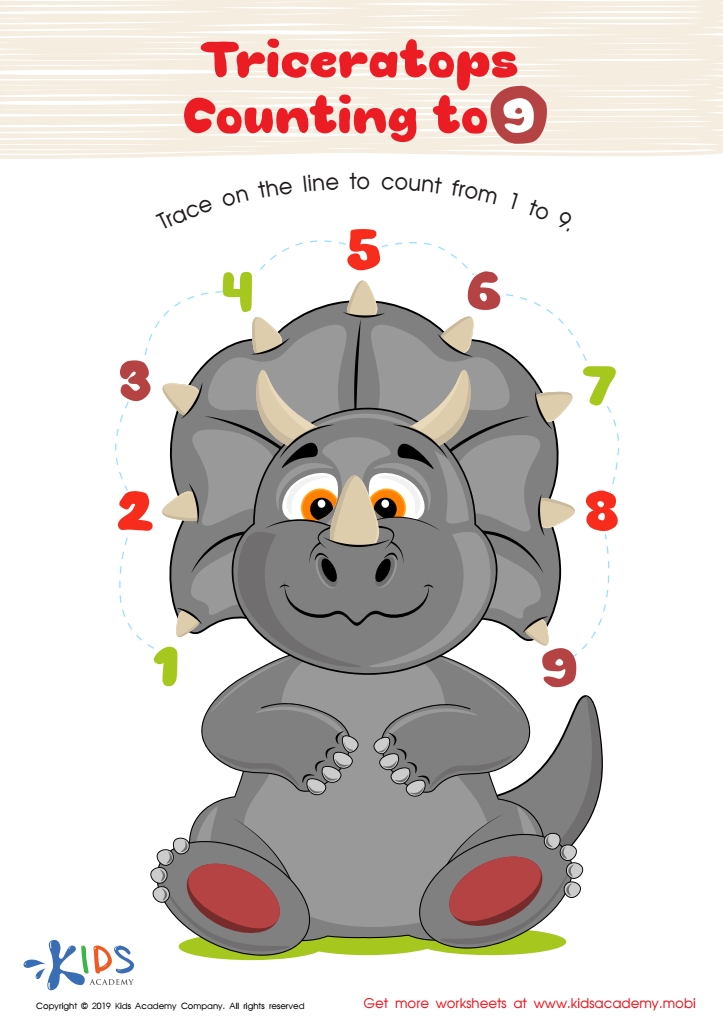

Triceratops Counting to 9 Worksheet
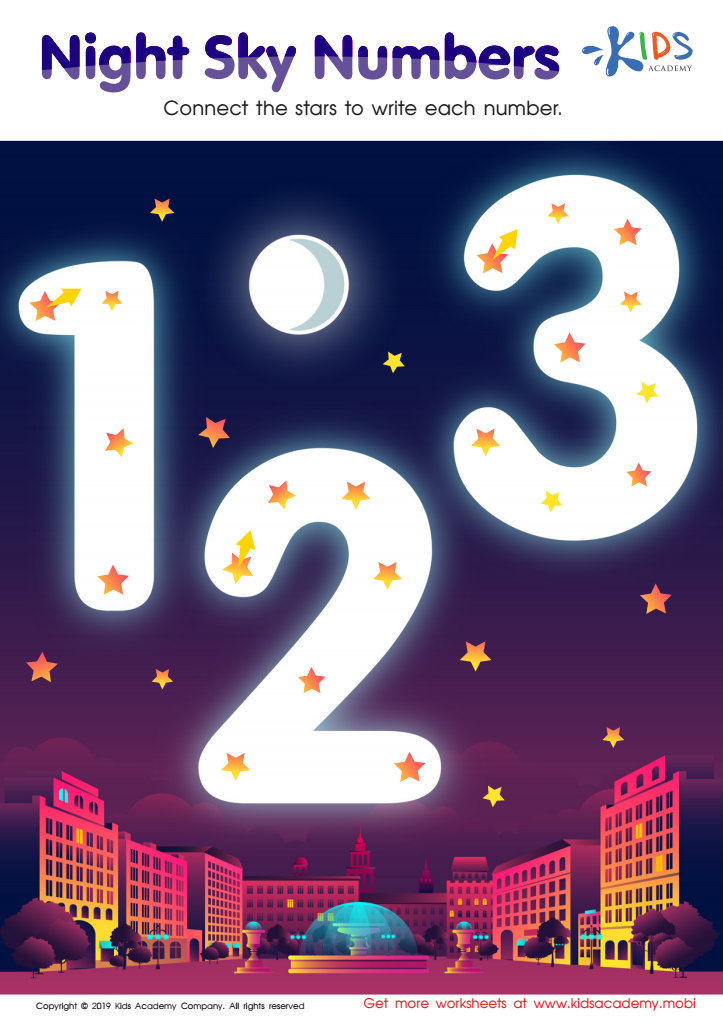

Night Sky Numbers Worksheet
Understanding cognitive development, particularly in preschool-aged children learning numbers 0–10, is crucial for parents and teachers for several reasons. First, this foundational phase prepares young minds for more complex mathematical concepts in later years. When children grasp basic numbers, they develop problem-solving skills and logical thinking, which are essential for overall cognitive growth.
Furthermore, learning numbers at an early age encourages curiosity and enhances self-confidence. Mastery of these fundamental concepts cultivates a love for learning, making children more inclined to engage with educational activities willingly. It also lays the groundwork for other subjects, such as science and literacy, where quantitative and analytical skills are pertinent.
Engaging children in fun, hands-on activities to learn numbers 0–10—like counting objects or using manipulatives—can significantly enhance their retention and interest. By promoting these skills, parents and teachers can better support children's overall academic success and emotional well-being.
Lastly, early involvement in cognitive development fosters better communication between parents and teachers, leading to a united, supportive approach in nurturing each child's potential, thus benefitting the child’s social and emotional learning alongside their academic career. By prioritizing these early experiences, adults can significantly impact a child's lifelong learning journey.
 Assign to My Students
Assign to My Students






